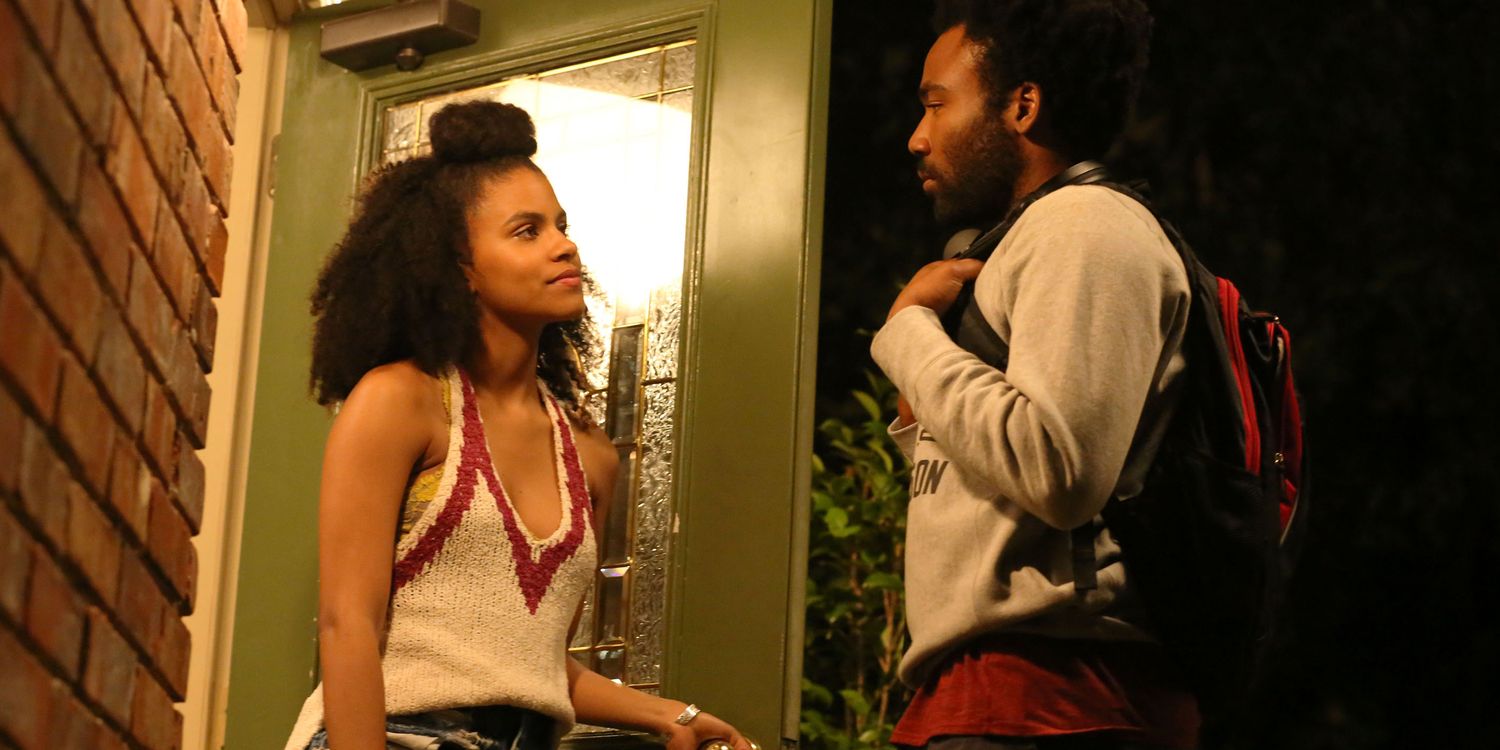[This is a review of the Atlanta season 1 finale. There will be SPOILERS.]
-
During its first season, Atlanta delivered an eclectic batch of episodes that highlighted the originality of its creator Donald Glover, as well as the visual inventiveness of director Hiro Murai. The series began extraordinarily strong, easily cementing itself as one of the best new shows of the year. Soon after, Glover, Murai, and the rest of the cast took a bold step, shifting the series' somewhat straightforward narrative of a young man working to satisfy his personal ambition and the expectations of those around him to something that was, on occasion, far more abstract. The result was a series that, at times, defied even the lofty expectations set ahead of its premiere.
The series actively defied what a conventional television episode and season could be. Entire episodes were given the room to do whatever they wanted – whether they furthered the narrative of Glover's perpetually adrift Earnest 'Earn' Marks and his cousin Alfred 'Paper Boi' Miles or not. More often than not, the season chose the latter, giving itself over to the whims of its creators who did not feel beholden to any established sense of structure or even the implied rules of reality within their own narrative.
The series created a stir with its seventh episode, 'B.A.N.', placing the up-and-coming rapper on a Charlie Rose-esque program hosted by Franklin Montague (Alano Miller) to address some of his lyrics and his outspoken opinions about everything from rap music to Caitlyn Jenner. But instead of presenting the story from Alfred or Earn's perspective, the episode played out as an actual episode of the fictional Montague program, complete with advertisements, like the amazing "The price is on the can, tho" Arizona Tea commercial, a Swisher Sweets cigarillos ad, and a series of Dodge promos that delivered an unexpected punch line at the end. The meta-episode was followed up with 'The Club,' a seemingly more orthodox installment about the routine ways celebrities flaunt their status and their cash, which ended with Paper Boi assaulting a club owner before rival rapper (in terms of celebrity status, anyway) Marcus Miles fleeing from the club in an invisible car.
As such, it's not surprising that the season 1 finale, 'The Jacket,' would strive to represent both sides of Atlanta – the story of Earn finding his way as a husband, a father, and a professional, and the more abstract elements that have made this debut season so memorable and enjoyable. 'The Jacket' is at once grounded in its core storytelling ambitions and fantastic in its execution of them. Beginning with a literal wake-up call, Earn is roused from a drunken slumber to find he's being escorted from the house of a friend (but not his friend, you know?). The opening plays like a dream or the moments immediately after waking from one that's simply too real. It sets the tone for the episode, as it gradually becomes about Earn's illusory quest for the titular jacket, but it is also the end result of all the work that Atlanta has done over the past nine weeks to give the audience the necessary tools to watch the series and appreciate what it's trying to do.
Earn's search for his jacket is revealed to be about more than a piece of clothing; it's about what was inside of it. The answer isn't divulged until the closing moments, but it doesn't really matter – the finale, like the season as a whole, is more concerned with the inexplicably weird and overwhelmingly ordinary things that happen to people, and how the mix of those experiences shape their world. It's an incredibly simple concept that's difficult to balance, as combining the banal with the bizarre rarely results in something as great as Atlanta. But it's in that contradiction, then, that the finale finds a way to make a big statement about its main character while the episode itself is fairly understated.
But while 'The Jacket' seems to show Earn having come right back to where he was in the beginning – ostensibly homeless and relying on the good will of others for a place to sleep – it actually presents the completion of an unassuming character arc; one that finds him with the keys to his own place (sure, it's a storage locker, but still), and two wrinkled one hundred dollar bills to his name. It's not an extreme or showy arc, as you might see in other shows – there's no rags to riches tale unfolding here – but by now it's clear that isn't how Atlanta works; it's not even remotely what Atlanta is interested in.
Instead, the series does in 'The Jacket' what it's done all season long: find something meaningful in the smallest of details and blow them up so that everyone can see. Earn's growth from the season's beginning to its end is modest and more contemplative than, say, an invisible car running people over outside a club, but Atlanta makes those modest gains the emotional equivalent of running a marathon.
-
Atlanta will return for season 2 in 2017 on FX.
Photos: Quantrell Colbert/FX



